What is Music?
Music in schools is an essential part of the curriculum, offering students the chance to explore and develop musical skills. It encourages creativity, teamwork, and emotional expression. Through activities like singing, playing instruments, and composing, students gain a deeper understanding of music, boosting cognitive abilities and cultural appreciation.
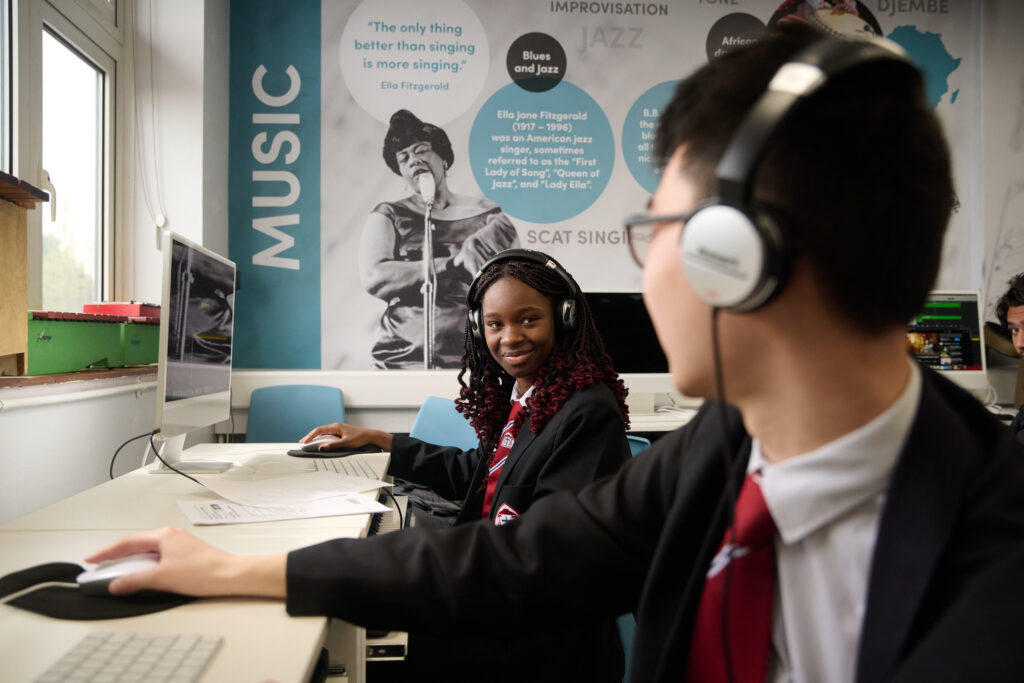
Why is Music important?
Music education in secondary schools plays a pivotal role in the holistic development of students, offering numerous benefits that enhance academic performance and contribute to overall well-being. These benefits span cognitive, emotional, social, physical, and cultural domains, helping to nurture well-rounded individuals.
Cognitive Development
Learning music has a profound impact on brain function. It activates various regions of the brain, improving cognitive abilities and strengthening neural connections. Music enhances spatial-temporal skills, vital for problem-solving and pattern recognition, which also supports mathematical reasoning. Additionally, music students often perform better academically, especially in subjects such as maths and language arts, thanks to transferable skills like focus, attention to detail, and critical thinking.
Emotional Intelligence
Music provides an essential outlet for self-expression, which is especially valuable during adolescence. It helps students navigate emotional challenges, providing a space to explore their identity and emotions. Moreover, engaging with music can reduce stress and anxiety, serving as a form of therapy that aids emotional regulation. Exposure to diverse genres fosters empathy, helping students understand different cultures and human experiences, which increases emotional awareness.
Social Development
Participating in group music activities such as choirs, bands, or orchestras teaches students valuable teamwork and communication skills. These experiences build social cohesion and interpersonal skills, as students work together to achieve a common goal. Performing music also boosts confidence, as it encourages overcoming fears and developing public speaking abilities. Furthermore, in group settings, students learn to listen attentively and respond to others, cultivating respect and effective collaboration.
Creativity and Innovation
Music education fosters creativity and innovation by allowing students to express themselves in unique ways. Through composition, improvisation, and performance, students develop creative thinking, which is essential for success in a variety of fields, including the arts, sciences, and business. The ability to think outside the box is particularly valuable in today’s fast-evolving job market, where original thought and innovation are highly prized.
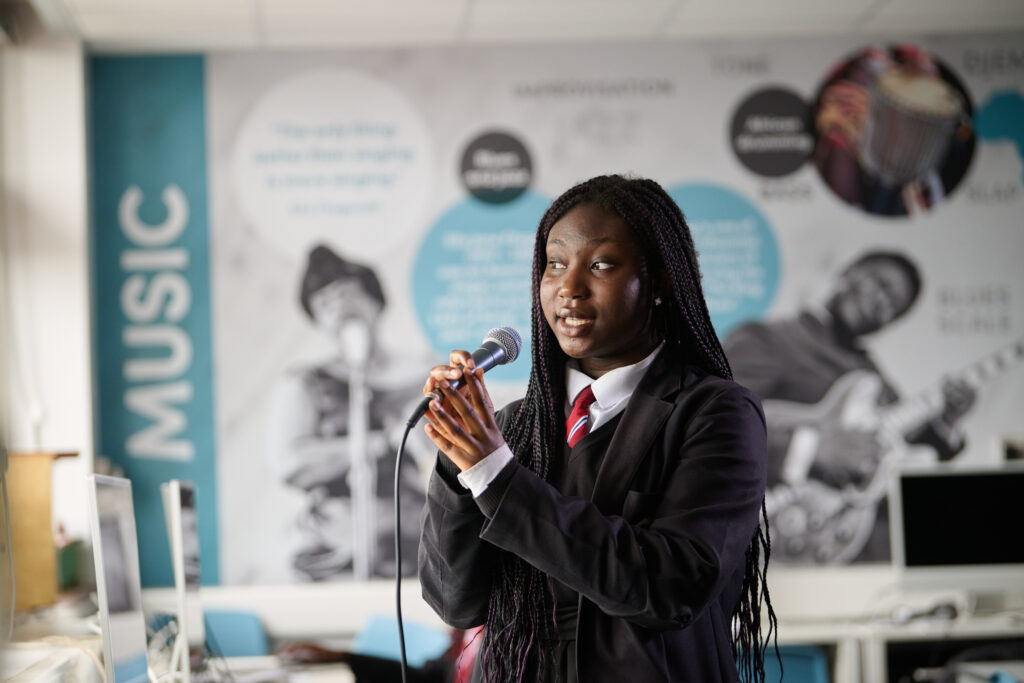
Discipline and Time Management
Learning music requires consistent practice and dedication. Students must manage their time effectively to balance regular practice and rehearsals, which teaches valuable skills in discipline and time management. Music education also emphasizes goal setting, both short-term and long-term, helping students break down complex tasks into manageable steps. These habits of consistency and perseverance benefit students beyond music, contributing to success in academics and other areas of life.
Physical Development
Playing musical instruments also contributes to physical development. Instruments like the piano, violin, and drums require fine motor control and hand-eye coordination, helping students improve their physical coordination. The rhythmic aspects of music also enhance overall body coordination, which can benefit other physical activities and sports.
Cultural Awareness and Inclusivity
Music education introduces students to diverse musical traditions from around the world, promoting respect for different cultures and fostering inclusivity. It helps break down stereotypes and encourages empathy by exposing students to various perspectives. Through music, students learn about the values, histories, and customs of different societies, strengthening their understanding of diversity.
Conclusion
Incorporating music into secondary school education provides students with far more than just a creative outlet. It enhances cognitive abilities, emotional intelligence, social skills, and physical coordination. Music also fosters creativity, discipline, and cultural awareness, all of which are essential for success in both academic and personal spheres. By embracing music as a core part of education, schools help to cultivate more well-rounded, innovative, and compassionate individuals prepared to succeed in an ever-changing world.
What is the Music curriculum at Cardinal Wiseman?
KS3 Curriculum
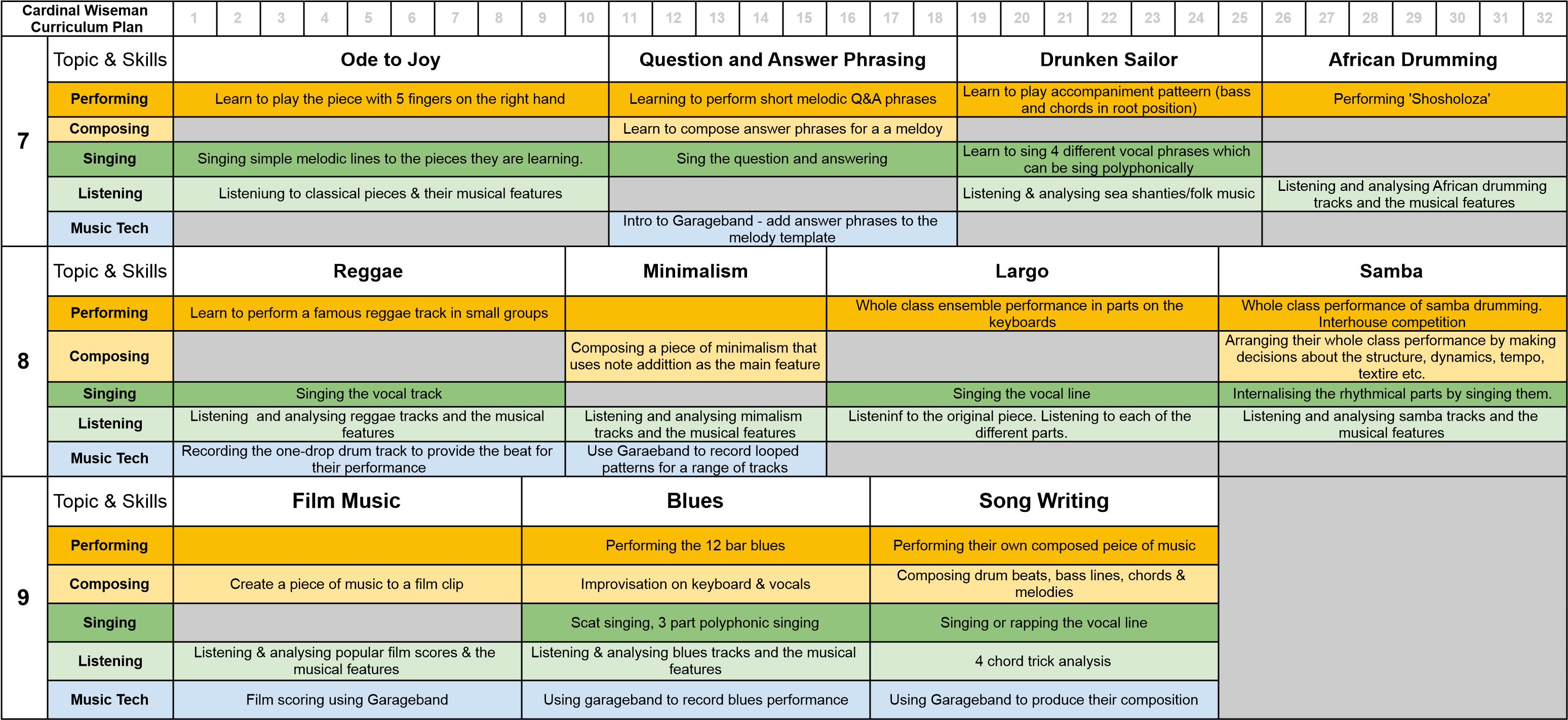
KS4 Curriculum
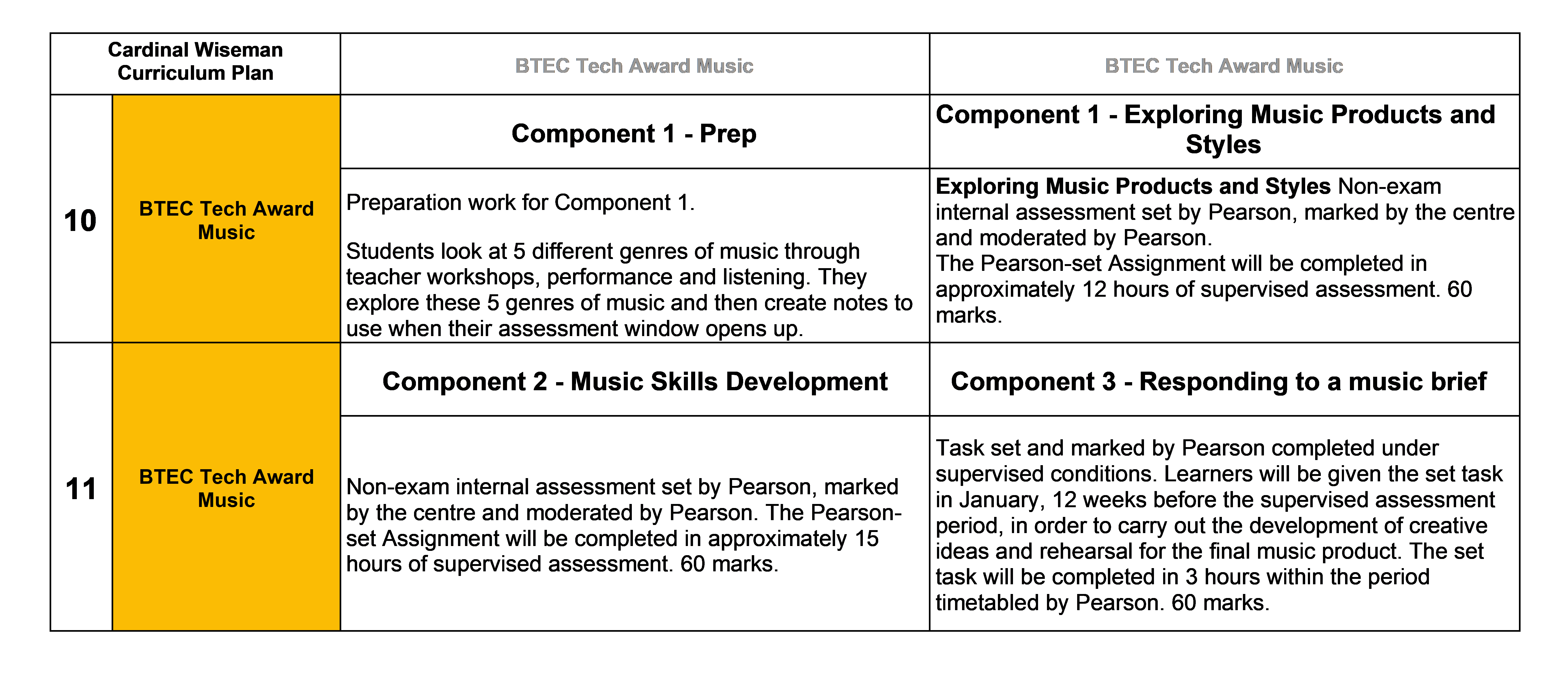
Depth as the Priority in Music Curriculum
At Cardinal Wiseman, we prioritise depth in our music curriculum, focusing on giving students the time and opportunity to thoroughly understand each area of study.
Sequencing by Topic and Time
- Our curriculum is organized by specific topics rather than half-termly projects.
- Time is allocated to each topic to allow for in-depth exploration.
- This structure ensures that students can master concepts without being rushed.
Benefits of Extended Focus
- Mastery of Concepts: Students have ample time to develop skills like performance, composition, and listening.
- Consolidation: Extended study allows students to reinforce and build on foundational concepts.
- Pace of Learning: No pressure from arbitrary end-of-term deadlines, enabling steady progress.
Connection Across Topics
- Topics are sequenced logically, so new concepts build on previous learning.
- This approach encourages students to make connections and apply learning across different areas of music.
Supportive Assessment and Feedback
- Assessments are aligned with each topic, tracking progress and guiding student development.
- Feedback is used to help students refine skills and reinforce their understanding over time.
- Assessments serve as tools for learning, not just as summative evaluations.
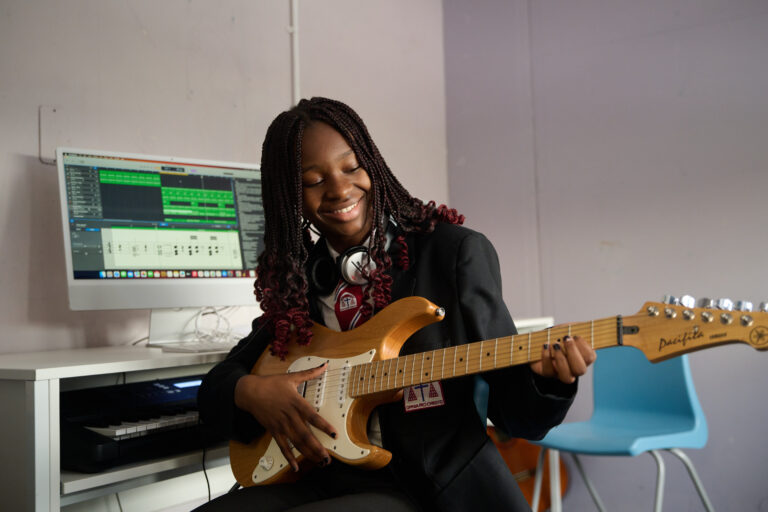
Student-Centered Progression
- Students experience clear progression within each topic, with opportunities to track their own growth.
- Time for mastery boosts students’ confidence and competence.
- The longer focus on each area ensures that students are well-prepared for both assessments and future musical endeavors.
Ultimate Goal: High-Quality, Rigorous Education
- Our approach reflects our commitment to delivering a high-quality music education.
- Students are encouraged to achieve their full potential through meaningful, in-depth learning experiences.
Click here to read our Music Development Plan

